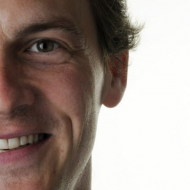Phaedrus remembered reading about an experiment with special glasses that made users see everything upside down and backwards. Soon their minds adjusted and they began to see the world “normally” again. After a few weeks, when the glasses were removed, the subjects again saw everything upside down again and had to relearn the vision they had taken for granted before.
(excerpt from the philosophical novel “Lila” by Robert M. Pirsig)
In any culture, business or organisation the glasses we wear affect the way we see things. I wrote about this is my blog-post on Active Empathy, noting that we need to be able to put our go in check in order to really show empathy to other people.
In the excerpt above, Pirsig talks about the impact of time on the way our glasses shape the world. After while, our minds adapt to what was at first backwards and upside down. The same is true in business and other organisations. The question is: How can we take the glasses off?
I recently had a training participant in a course on “Proactive behaviour”. She was new to the company and came with her own special glasses, the ones she had formed in her previous company. She encountered 3 major “difficulties”:
- She couldn’t really see things the same way her new colleagues did – she disagreed with much off what she saw and heard
- She had difficulty getting herself heard; her new colleagues couldn’t see past their own glasses
- She wasn’t really truly aware of the impact of her own glasses on her perception of her new environment. She found it difficult to “be fresh” or open-minded
In “Four Hour Work Week”, Tim Ferriss tells us to “kill our sacred cows”. These are the assumptions that we have which form the way we operate and do business. In India, a sacred cow can stop traffic and in some cultures, the sacred cow would never be eaten, even when starving. Ferriss talks about how his own assumptions about the way to do business were crippling his ability for growth. His glasses were the problem. Pirsig says the same thing, although in a slightly more philosophical manner: “In any hierarchical (metaphysical) classification, the most important division is the first one, for this division dominates everything beneath it. If the first division is bad, there is no way you can ever build a good system (of classification) around it.”
If we want to innovate, develop, grow and do things differently, we need to be able to kill our sacred cows. To do this, we need to be able to see our glasses for what they really are. And this is tough.
On a high-level, 2 approaches to first identifying sacred cows may be of use:
- Go out in the world and look at how other people are doing things – although you will probably do this with your own glasses on, it can still help you to see what you are taking for granted in your own system
- Get someone from outside to come in to your own organisation and LISTEN to what they have to save
Personally, I find it easy to just ask a few good questions to understand where the sacred cows are:
- What do you absolutely believe to be true about the way you operate?
- Which people and processes can you NOT live without and why?
- In all the business you do, what 3 elements always seem to be present?
- If an outsider came into your culture and told you to stop doing certain things, what would you really hate to hear from him?
The answers to these questions may be an indication of the kinds of assumptions, glasses and sacred cows that are helping to run your business. But they may equally be the things that are stopping the traffic, development and innovation.
The question is: What are you going to do about it?
Thanks or reading!
Leave a comment
Follow me on Twitter
Visit www.infinitelearning.be

Leave a comment